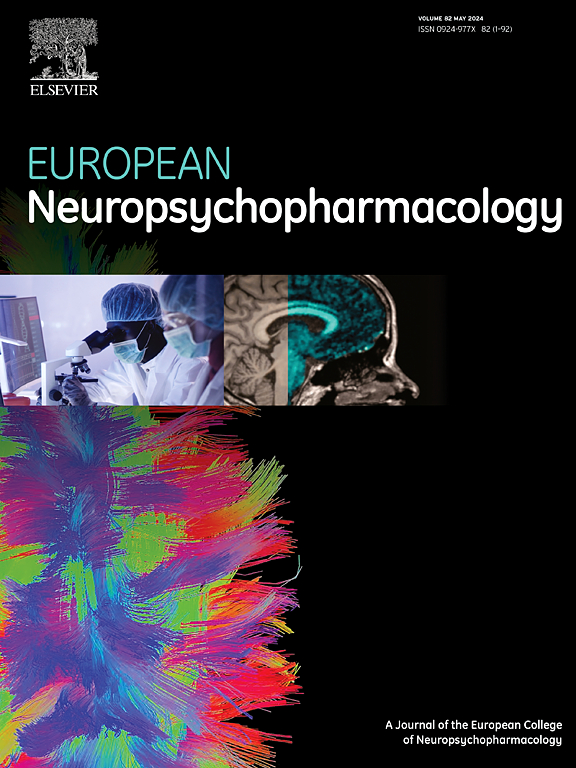非洲的精神遗传学研究--临床医生的视角
IF 6.7
2区 医学
Q1 CLINICAL NEUROLOGY
引用次数: 0
摘要
精神病遗传学可提高非洲精神病诊所对病因的认识,预测易感性,并为患者量身定制治疗方案。然而,遗传学在非洲和其他中低收入地区的发展和应用面临着独特的挑战和机遇。本讲座将从精神科医生的角度回顾基因研究的实践和前景,与与会者分享精神科研究的文化态度、开展研究时面临的障碍以及对当地产生影响的潜力。然而,由于缺乏具体的答案,他们并不满意,因此许多人依赖于文化解释。更好地了解非洲的精神病遗传学可以提供这些答案,并帮助患者继续接受治疗。此外,由于患者的教育程度和健康知识水平参差不齐,因此向患者解释复杂的遗传学术语对临床医生来说往往具有挑战性。尽管有证据表明,与其他人群相比,非洲人的遗传多样性程度很高,但全球 5%的精神疾病遗传样本来自非洲裔人群。重要的是,非洲临床医生在临床中使用精神疾病遗传学的培训非常有限。例如,在 80 名乌干达精神科医生中,只有 5 人通过全球神经精神遗传学教育与研究倡议(GINGER)接受过精神遗传学方面的培训。此外,落实遗传学见解需要基础设施,但很少有机构提供基因检测等服务,而且费用高昂。让临床医生参与精神科遗传学研究至关重要,因为他们在将精神科遗传学研究融入实践中发挥着重要作用。当务之急是让参与研究的非洲国家的利益相关者,包括未直接参与遗传学研究的临床医生,了解遗传学研究对患者护理的益处。这些临床医生可以进一步倡导将遗传学研究纳入国家卫生政策,使更多人受益。本文章由计算机程序翻译,如有差异,请以英文原文为准。
PSYCHIATRIC GENETICS RESEARCH IN AFRICA – A CLINICIAN'S PERSPECTIVE
Psychiatric genetics may improve understanding of etiology, predicting susceptibility, and tailoring treatments for patients in African psychiatric clinics. However, its development and application in Africa and other low-and-middle-income settings presents unique challenges and opportunities. This presentation will review both the practice and promise of genetic research from a psychiatrist's perspective, sharing with attendees cultural attitudes for psychiatric research, barriers faced when conducting research and potential for local impact.
In African clinics, patients often seek explanations for their mental illness and their children's risk for acquiring the illnesses. However, a lack of concrete answers leaves them dissatisfied, leading many to rely on cultural explanations. A better understanding of psychiatric genetics in Africa could provide these answers and help retain patients in care. Also explaining complex genetic terms to patients is often challenging for clinicians since patients have varying education and health literacy levels. Simplifying and translating these terms is crucial.
There is still limited research on the genetic risks for mental disorders in Africa. < 5% of psychiatric genetic samples worldwide are from people of African ancestry despite evidence of the high level of genetic diversity in comparison to other populations. Importantly, African clinicians have limited training in use of psychiatric genetics in the clinic. For example, only five out of eighty Ugandan psychiatrists have received training in psychiatric genetics through the Global Initiative for Neuropsychiatric Genetics Education and Research (GINGER). In addition, implementing genetic insights requires infrastructure, but few facilities offer services like genetic testing, and costs are prohibitive.
The ever-expanding field of psychiatric genetics research must include and cater to African clinicians. Involving clinicians in psychiatric genetic research is crucial as they play an important role integrating psychiatric genetics research into practice. It is imperative that stakeholders from participating African countries, including clinicians not directly involved in genetics research, are enlightened on the benefits of genetics research to patient care. These clinicians can further advocate for incorporating genetic research into national health policies to benefit the broader population.
求助全文
通过发布文献求助,成功后即可免费获取论文全文。
去求助
来源期刊

European Neuropsychopharmacology
医学-精神病学
CiteScore
10.30
自引率
5.40%
发文量
730
审稿时长
41 days
期刊介绍:
European Neuropsychopharmacology is the official publication of the European College of Neuropsychopharmacology (ECNP). In accordance with the mission of the College, the journal focuses on clinical and basic science contributions that advance our understanding of brain function and human behaviour and enable translation into improved treatments and enhanced public health impact in psychiatry. Recent years have been characterized by exciting advances in basic knowledge and available experimental techniques in neuroscience and genomics. However, clinical translation of these findings has not been as rapid. The journal aims to narrow this gap by promoting findings that are expected to have a major impact on both our understanding of the biological bases of mental disorders and the development and improvement of treatments, ideally paving the way for prevention and recovery.
 求助内容:
求助内容: 应助结果提醒方式:
应助结果提醒方式:


